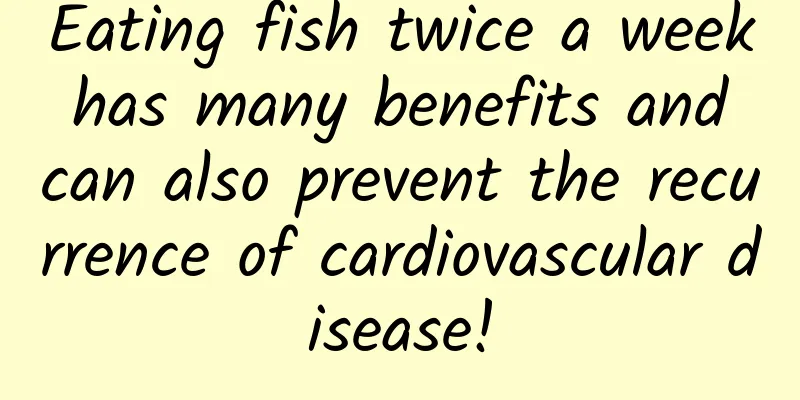[Medical Q&A] How to determine whether a child has diarrhea and is dehydrated?
![[Medical Q&A] How to determine whether a child has diarrhea and is dehydrated?](/upload/images/67f0ff594ccd3.webp)
|
Planner: Chinese Medical Association Reviewer: Huang Lei, deputy chief physician, Fifth Medical Center, PLA General Hospital Diarrhea is one of the most common diseases in children, and severe diarrhea can easily lead to dehydration. Dehydration refers not only to the loss of water, but also the loss of electrolytes. It is generally judged based on a comprehensive analysis of spirit, consciousness, skin elasticity, circulation, anterior fontanelle, eye sockets, urine volume and weight at the time of consultation. For children, the judgment of dehydration is particularly important because their body's ability to regulate is relatively weak. The following are some ways to judge whether a child is dehydrated due to diarrhea. (1) Mild dehydration: Water loss accounts for less than 5% of body weight (30-50 ml/kg). The child is in normal or slightly worse mental state; the skin is slightly dry, but elastic; the eye sockets and anterior fontanelles are slightly sunken; there are tears when crying; the oral mucosa is slightly dry; and the urine volume is slightly reduced. (2) Moderate dehydration: Water loss accounts for 5% to 10% of body weight (50 to 100 ml/kg). The child is listless or irritable, with dry skin and poor elasticity; the eye sockets and anterior fontanelles are obviously sunken; there are few tears when crying; the oral and lip mucosa are dry; the limbs are slightly cool, and the urine volume is significantly reduced. (3) Severe dehydration: Water loss accounts for more than 10% of body weight (100-120 ml/kg). The child appears seriously ill, extremely depressed, apathetic, lethargic or even comatose; the skin is gray or patterned, dry, and loses elasticity; the eye sockets and anterior fontanelles are deeply sunken, the eyes are closed but not visible; there are no tears when crying; the oral mucosa is extremely dry; symptoms of shock appear, such as a weak and rapid pulse, a drop in blood pressure, cold limbs, and very little or no urine. If your child has any of the above symptoms of dehydration, you should replenish water in a timely and scientific manner. If moderate or severe dehydration occurs (such as extreme weakness and unresponsiveness), you should seek medical attention immediately! |
<<: [Medical Q&A] Are tinea corporis and eczema the same thing?
>>: [Medical Q&A] How to distinguish between paronychia and onychomycosis?
Recommend
What's wrong with morning sickness and blood?
Morning sickness generally occurs in the early st...
Can I have children if I have moderate anemia?
Anemia is a very common disease in our lives, bec...
12 levels of dysmenorrhea
Menstrual pain is not unfamiliar to female friend...
The harm of having a second child with triple positive
Everyone knows that the most serious period of he...
[Fat Bear Science] Gallstones are more common in the "F4" group, and if left untreated for a long time, there is a risk of cancer
F4 stands for Fat, Forty (over 40 years old), Fet...
Does taking medicine before pregnancy have any effect on the fetus?
Taking medicine is a very common thing for ordina...
China Press and Publication Research Institute: 2014 11th National Reading Survey Report
The results of the national reading survey organi...
Causes of early spontaneous abortion
Nowadays, many pregnant women pay close attention...
Why do my breasts hurt when I’m angry?
Sometimes in life, many things are not as we wish...
What is stroke?
...
What does bilateral breast hyperplasia mean?
Diseases continue to harm people's health as ...
What exercises can pregnant women do?
After pregnancy, many people mistakenly believe t...
At what age do girls start to develop breasts?
At what age do girls start to develop breasts? Ma...









